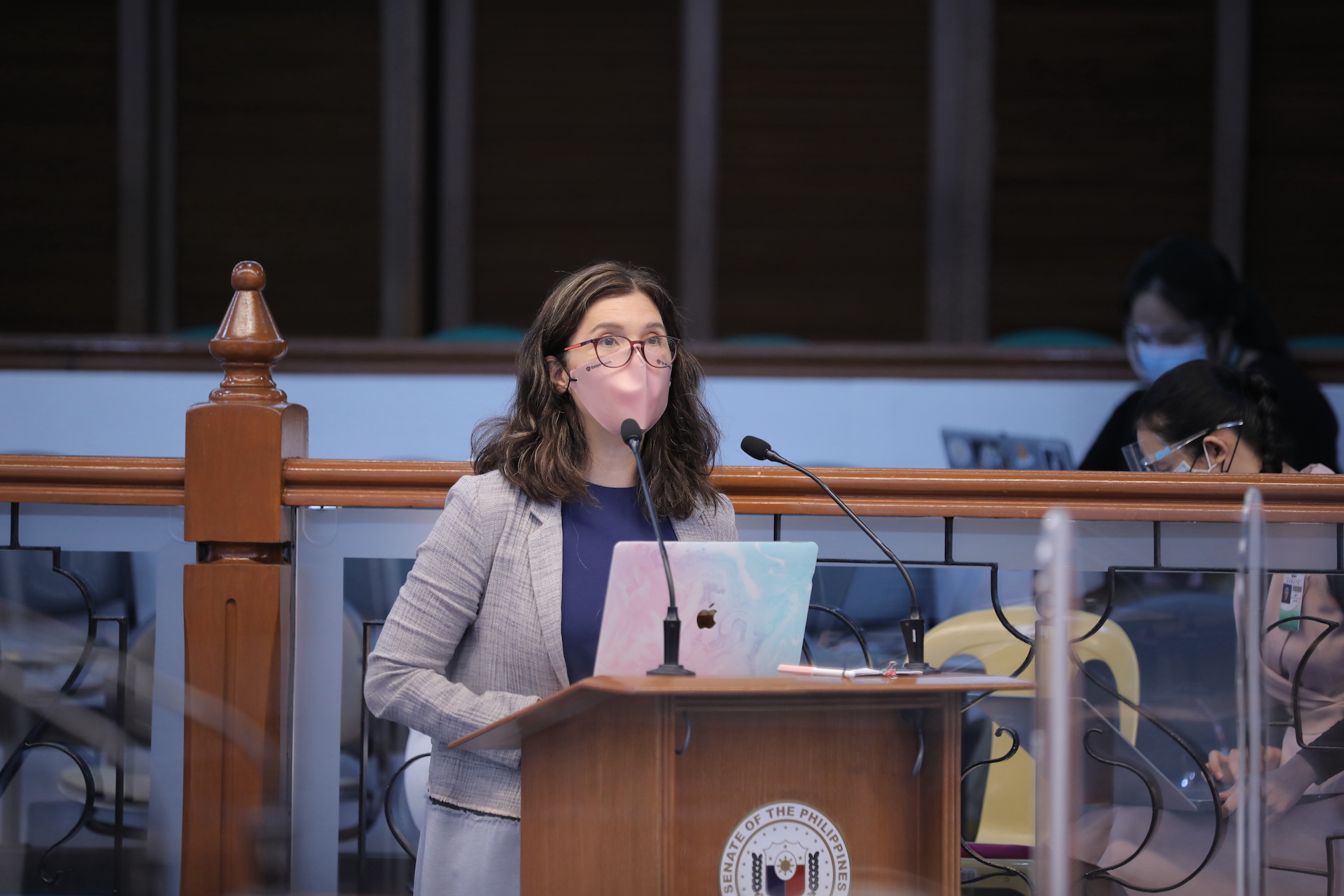Our country is in the midst of a health and education crisis. We need to attract and retain the best in the profession. One way to do this is to pay them well.
The Senate and the House each passed their own resolution, which are both referred to as the Salary Standardization Law 3 (SSL 3) which seek to revise the current compensation structure for government employees and increase their pay.
Last week, the sponsor in the Senate, presented a survey showing the Philippines at the lowest end of the scale in terms of monthly salaries of government employees and officials. There are also inconsistencies such as overlapping of salaries between salary grades.
I support the objective of SSL 3. However, during the hearings and upon a more in-depth study of the measure, it became clear to me that the teachers and health workers are not being given their fair share in the increase of salaries.
At the start of my interpellation on the floor, I laid the basis of my appeal for higher wages for health workers and teachers. There are hospitals in the provinces that have closed down due to the lack of doctors. Hospitals are grossly understaffed and many government nurses are overworked, often working double shifts just to cover the needs of their patients. The same goes with teachers, many of them work double, some even triple shifts.
In the case of the nurses, their current salary grade is Salary Grade (SG) 10, which is equivalent to P12,026 per month. The Nursing Act of 2002 (RA 9173) assigned the starting position of all government nurses at Salary Grade (SG) 15 equivalent to P25,067 per month. Since the law was passed, the nurses have been lobbying for its implementation. Seven years later, this law has yet to be implemented. Now, by virtue of SSL 3, the starting pay of a nurse will be pegged at SG 11 equivalent to P18,088 per month, four salary grades lower than provided for in the Nursing Act!
This is totally unacceptable. We are taking back from our nurses what our previous Congress has accorded them. We are effectively violating their right to non-diminution of compensation, a principle that is deeply ingrained in our labor laws.
With respect to teachers, last year, the Senate passed a bill increasing the salary of teachers by P9,000 over the next three years. But now, under SSL 3, only a P6,500-pay increase to teachers is granted over the next four years.that amounts to an increase of only P1,625 a month each year.
During my interpellation, I also pointed out that there is a gender bias involved here. Studies done internationally and locally show that professions that are traditionally dominated by women, like teaching and nursing, are pegged at a lower salary grade than other professions.
In fact in 1991, the Commission on Education recommended the salary grade of a teacher 1 be SG 17 equivalent to a 1st lieutenant in the Philippine Army. As it is SSL 3, pegs nurses and teachers at SG 11, while a 2nd Lt is at salary grade 19, a difference of almost P10,000. An AFP private’s take home pay is even higher than a teachers. This bias can also seen when compared to other professions.
The Department of Budget and Management expressed regret that the salaries of these professionals could not be further increased due to lack of funds. But I beg to differ. The total package allocated for the salary increase is P20 Billion. There is P75 Billion in unprogrammed funds. These are funds left to the full discretion of the President. Is it too much to ask to allocate some of these unprogrammed funds for salaries?
Unfortunately, my amendment to increase their salaries were rejected. What was accepted was my amendment that if there is a P50 Billion increase of revenue each year, the government will allocate 5% or P2.5 Billion for the salaries of government employees. Another amendment I pushed for was a salary differencial for Science and Math teachers. This was accepted.
During the deliberations, I also stressed the need to look at the impact on our national development. By continuously depriving our teachers and nurses of just wages, we are also jeopardizing our Millennium Development Goals (MDGs), particularly MDG 2 (achieve universal primary education) and MDG 5 (improve maternal health).
Let me end by saying, it is my position that government should acknowledge that we are in the midst of a health and education crisis. One way to address this is by having competent professionals in these fields. It goes without saying that they should be paid well.







0 comments on “Government Employees Deserve a Better Deal”